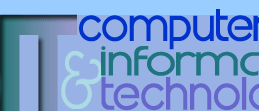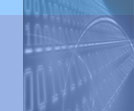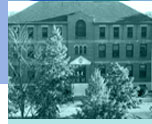|
|
|
|
|
|
|
|
|
|
|
|
|
|
If you are interested in being an Honours Student under my supervision, please let me know. Education Ph.D. Computer Science, University of Waterloo M.E. Computer Science, Harbin Institute of Technology, China B.E. Computer Science, Harbin Institute of Technology, China Awards · Presidential Recognition Award of Merit for Scholarly Endeavours (2016–2017) · Annual Merit Award for Outstanding Scholarly Achievement (2016–2017) Research Highlight The establishment of Dew Computing. Technical Contributions to Dew Computing · Cloud-dew architecture [40][41][42][60] · Dew computing technical descriptions [43][44][47][49][51] · WiD, SiD, PiD, and IaD categories [47] · Reveal dew computing features through comparisons [44][51][55][61] · Modeling of dew computing [51][53][54][55] · Formal description of dew computing [62] · Dew computing application in blockchains [57][58][60] · Dew computing other applications [40][50] Organizational Contributions to Dew Computing · proposed, organized, and hosted DEWCOM 2016 in UPEI; served as Program Committee Chair and Organizing Committee Chair. · helped in organizing DEWCOM 2017 in Croatia; served as Co-Chair and Steering Committee Member. · advocated the establishment of IEEE DewCom STC and served as the major contact person; appointed as the Chair of IEEE DewCom STC by IEEE Computer Society on Dec. 20, 2017. · organized DEWCOM 2018 in Toronto; served as Co-Chair; edited Proceedings of The 3rd International Workshop on Dew Computing (DEWCOM 2018). · established and collaboratively maintained Dew Computing Research website, which served the dew computing community as its central hub · Other Roles Related to Dew Computing · Editor in Chief, OJCC, since Nov. 2018 · Editorial Board Member, OJDB, since Mar. 2016 · Editorial Board Member, OJWT, since Mar. 2016 · Volunteer, Internet Engineering Task Force (IETF), since Oct. 10, 2015 · Member, Internet Society · Member, Internet Society Blockchain SIG (Special Interest Group) · Member and Volunteer, IEEE and IEEE Computer Society · Session Chair, PDPTA 2015, Aug. 2015 Key Contributions to Bioinformatic · [37] accessed more than 17,000 times; cited 59 times. first three authors (including me) contributed equally. · [38] accessed more than 14,000 times; cited 37 times. · [39] accessed more than 6,000 times. · [45] accessed more than 6,000 times; the most influential paper for the Journal. · [31] was cited 49 times. · high impact on research, industry, government policy making. · The Discovery of Genomic Signatures’ Determinants Research Reflections · The International Journal of Cloud Computing and the whole Inderscience Publishers highly rated paper [40]. On September 15, 2015, Inderscience Publishers announced the endeavor of cloud-dew architecture to the science community in the form of a public release. Over 30 media published the news, including some media in Russia, India, Japan, Montenegro, and Colombia. These media are listed here. Publications [78] Frederick Kibenge, Ashley McKibbon, Molly Kibenge, and Yingwei Wang. “Bioinfor- matics Analysis Identifies a Small ORF in the Genome of Fish Nidoviruses of Genus Oncotshavirus Predicted to Encode a Novel Integral Protein”. In: Microbiology Research 12.4 (2021), pp. 753–764. issn: 2036-7481. doi: 10.3390/microbiolres12040055. on Dew Computing (DEWCOM 2018). IEEE Computer Society Dew Computing Special Technical Community (DewCom STC). Toronto, Canada: Dew Computing Research, Oct. 2018. DOI: 10.13140/RG.2.2.27229.87522. [61] Marjan Gusev and Yingwei Wang. “Formal Description of Dew Computing”. In: Proceedings of The 3rd International Workshop on Dew Computing. Oct. 2018, pp. 8–13. DOI: 10.13140/RG.2.2.32263.04006. [60] Yi Pan, Parimala Thulasiraman, and Yingwei Wang. “Overview of Cloudlet, Fog Computing, Edge Computing, and Dew Computing”. In: Proceedings of The 3rd International Workshop on Dew Computing. Oct. 2018, pp. 20–23. DOI: 10.13140/RG.2.2.35618.48326. [59] Yingwei Wang. “Dewblock: A Blockchain System Based on Dew Computing”. In: Proceedings of The 3rd International Workshop on Dew Computing. Oct. 2018, pp. 34–38. DOI: 10.13140/RG.2.2.30585.31849. [58] Yingwei Wang. The Dewblock Open Source Project. [online]. Aug. 2018. [57] Yingwei Wang. The Dewblock Website. [online]. Sept. 2018. [56] Frederick S. Kibenge, Molly J. Kibenge, Yingwei Wang, Emma Moore, Ashley V. McKibbon, and Alexandra Morton. A novel salmonid bafinivirus with a putative sixth protein and wide in-vitro host range. [presentation]. 37th American Society for Virology Annual Meeting. University of Maryland, College Park, Maryland, July 2018. [55] Yingwei Wang, Karolj Skala, Andy Rindos, Marjan Gusev, Shuhui Yang, and Yi Pan. “Dew Computing and Transition of Internet Computing Paradigms”. In: ZTE Communications 15.4 (2017), pp. 30–37. [54] Yingwei Wang. “The Theory and Applications of Dew Computing”. In: Proceedings of the 27th Annual International Conference on Computer Science and Software Engineering. CASCON’17. Markham, Ontario, Canada, Oct. 2017, pp. 317–317. [53] Yingwei Wang. An Attempt to Model Dew Computing. [oral presentation]. The 2nd International Workshop on Dew Computing. Opatija, Croatia, May 2017. [52] Molly J. T. Kibenge, Yingwei Wang, Alexandra Morton, Richard Routledge, and Frederick S. B. Kibenge. “Formal comment on: Piscine reovirus: Genomic and molecular phylogenetic analysis from farmed and wild salmonids collected on the Canada/US Pacific Coast”. In: PLoS ONE 12.11 (2017). [51] Andy Rindos and Yingwei Wang. “Dew Computing: The Complementary Piece of Cloud Computing”. In: Big Data and Cloud Computing (BDCloud), Social Computing and Networking (SocialCom), Sustainable Computing and Communications (SustainCom)(BDCloud-SocialCom-SustainCom), 2016 IEEE International Conferences on. IEEE. 2016, 15–20. [50] Yingwei Wang and David LeBlanc. “Integrating SaaS and SaaP with Dew Computing”. In: Big Data and Cloud Computing (BDCloud), Social Computing and Networking (SocialCom), Sustainable Computing and Communications (SustainCom)(BDCloud- SocialCom-SustainCom), 2016 IEEE International Conferences on. IEEE. 2016, 590–594. [49] Yingwei Wang. Exploration and Comparison on the Definitions of Dew Computing. [oral presentation]. IEEE Canadian Atlantic Section Communications Society Chapter. Charlottetown, Canada, July 2016. [48] Frederick S. Kibenge, Marcos G. Godoy, Molly J. Kibenge, Yingwei Wang, Rudy Suarez, Camila Leiva, and Francisco Vallejos. Genetic Diversity of Piscine Orthoreovirus. [presentation]. 35th American Society for Virology Annual Meeting. Virginia Tech, Blacksburg, Virginia, June 2016. [47] Yingwei Wang. “Definition and Categorization of Dew Computing”. In: Open Journal of Cloud Computing (OJCC) 3.1 (2016), pp. 1–7. [46] Marcos G. Godoy, Molly J. T. Kibenge, Yingwei Wang, Rudy Suarez, Camila Leiva, Francisco Vallejos, and Frederick S. B. Kibenge. “First description of clinical presentation of piscine orthoreovirus (PRV) infections in salmonid aquaculture in Chile and identification of a second genotype (Genotype II) of PRV”. In: Virology Journal 13.98 (2016). [45] Molly Juliet Kibenge, Tokinori Iwamoto, Yingwei Wang, Alexandra Morton, Richard Routledge, and Frederick Stephen Kibenge. “Discovery of variant infectious salmon anaemia virus (ISAV) of European genotype in British Columbia, Canada”. In: Virology Journal 13.3 (Jan. 2016). DOI:10.1186/s12985-015-0459-1. [44] Yingwei Wang. The Relationships among Cloud Computing, Fog Computing, and Dew Computing. Dew Computing Research. Nov.12. 2015. [43] Yingwei Wang. The Initial Definition of Dew Computing. Dew Computing Research. Nov.10. 2015. [42] Yingwei Wang. Cloud-Dew Architecture Experimental Site. [online]. 2015. [41] Yingwei Wang and Yi Pan. “Cloud-dew architecture : realizing the potential of distributed database systems in unreliable networks”. In: Proceedings of the 21st International Conference on Parallel and Distributed Processing Techniques and Applications (PDPTA 2015). Las Vegas, USA, July 2015, pp. 85–89. [40] Yingwei Wang. “Cloud-dew architecture”. In: International Journal of Cloud Computing 4.3 (2015), pp. 199–210. [39] Marcos G Godoy, Rudy Suarez, Eduardo S Lazo, Katerina O Llegues, Molly JT Kibenge, Yingwei Wang, and Frederick SB Kibenge. “Genetic analysis and comparative virulence of Infectious Salmon Anemia Virus (ISAV) types HPR7a and HPR7b from recent field outbreaks in Chile”. In: Virology Journal 11.204 (2014). DOI:10.1186/s12985-014- 0204-1, (Highly Accessed). [38] Molly J.T Kibenge, Tokinori Iwamoto, Yingwei Wang, Alexandra Morton, Marcos G Godoy, and Frederick S.B Kibenge. “Whole-genome analysis of piscine reovirus (PRV) shows PRV represents a new genus in family Reoviridae and its genome segment S1 sequences group it into two separate sub-genotypes”. In: Virology Journal 10.230 (2013). DOI:10.1186/1743-422X-10-230, (Highly Accessed). [37] Frederick SB Kibenge, Marcos G Godoy, Yingwei Wang, Molly JT Kibenge, Valentina Gherardelli, Soledad Mansilla, Angelica Lisperger, Miguel Jarpa, Geraldine Larroquete, Fernando Avendano, Marcela Lara, and Alicia Gallardo. “Infectious salmon anaemia virus (ISAV) isolated from the ISA disease outbreaks in Chile diverged from ISAV isolates from Norway around 1996 and was disseminated around 2005, based on surface glycoprotein gene sequences”. In: Virology Journal 6.88 (2009). The first three co-authors are equal contributors, DOI: 10.1186/1743-422X-6-88, (Highly Accessed). [36] Frederick S.B. Kibenge, Molly J.T. Kibenge, Yingwei Wang, Biao Qian, Shebel Hariharan, and Sandi McGeachy. “Mapping of putative virulence motifs on infectious salmon anemia virus surface glycoprotein genes”. In: Journal of General Virology 88 (2007), pp. 3100–3111. [35] Frederick S.B. Kibenge, Molly J.T. Kibenge, Yingwei Wang, Biao Qian, Shebel Hariharan, and Sandi McGeachy. “Molecular Correlates Of ISAV Virulence”. In: the 32nd Annual Eastern Fish Health Workshop. Gettysburg, PA, June 2007. [34] Frederick S.B. Kibenge, Molly J.T. Kibenge, Yingwei Wang, Biao Qian, Shebel Hariharan, and Sandi McGeachy. “Correlates of Virulence of Infectious Salmon Anaemia Virus”. In: OIE Global Conference on Aquatic Animal Health. Bergen, Norway, Oct. 2006. [33] Molly J.T. Kibenge, Yingwei Wang, Biao Qian, Sandi McGeachy, and Frederick S.B. Kibenge. “Virulence Phenotypes of Infectious Salmon Anaemia Virus (ISAV)”. In: 5th International Symposium on Aquatic Animal Health. San Francisco, California, USA, Sept. 2006. [32] Yingwei Wang, Lawrence Hale, Kathleen Hill, and Shiva Singh. “Mining invariants in biological sequences”. In: Data Mining in Life Sciences (DMLS2006). Leipzip, Germany, July 2006, pp. 111–118. [31] Yingwei Wang, Kathleen Hill, Shiva Singh, and Lila Kari. “The Spectrum of Genomic Signatures: from Dinucleotides to Chaos Game Representation”. In: GENE 346 (2005), pp. 173–185. [30] Yingwei Wang. “Binary One Algorithm: Retrieving High-Frequency Words in Linear Time and Logarithmic Space”. PhD thesis. Waterloo, Canada: School of Computer Science, University of Waterloo, Mar. 2003. [29] Yingwei Wang and Nick Cercone. “Fast Searches in a Recommendation Session”. In: Mathematical and Computer Modelling 36 (2002), pp. 1265–1274. [28] Yingwei Wang and Nick Cercone. “Head-Snapshot: A Fast High-Frequency-Word Retrieval Algorithm”. In: Proc. of the IASTED International Conference on Artificial Intelligence and Soft Computing (ASC 2002). Banff, Canada, 2002, pp. 336–341. [27] Yingwei Wang and Nick Cercone. “Collections, Collection Exemplars, and the Exemplification Algorithm”. In: Proc. of the 2001 Conference of the Pacific Association for Computational Linguistics. Kitakyushu, Fukuoka, Japan, 2001, pp. 292–297. [26] Yingwei Wang. “A Learning-based Chinese Dictionary Self-Expansion Algorithm”. In: Computers and Languages 19 (1998). in Chinese, pp. 188–195. [25] Yingwei Wang. “A Chinese Word Recognition Algorithm”. In: Chinese Linguistics 25 (1997). in Chinese, pp. 537–544. [24] YingweiWang. “A New Algorithm useful in Chinese Script Recognition Post-Processing”. In: Computers and Languages 18 (1997). in Chinese, pp. 128–134. [23] Yingwei Wang and Xiaofei Xu. “The Integration of MRP–II and MIS”. In: CIMS Communications 2 (1997). in Chinese, pp. 32–37. [22] Yingwei Wang, Dezhang Liu, Dechen Zhan, and Jinghui Shi. Qiqihar Machine Tool Works Computer Integrated Manufacturing System Specification. Tech. rep. in Chinese. Harbin, China: Harbin Institute of Technology, Oct. 1997. [21] Dafei Gao and Yingwei Wang. Questions and Answers for Windows NT. ISBN 7-115- 06347-8/TP386, in Chinese. Beijing, China: China Post and Communication Press, Feb. 1997. [20] Yingwei Wang. “Chinese Script Description Code and its Application in Chinese Script Recognition”. In: Computers and Languages 17 (1996). in Chinese, pp. 296–301. [19] Yingwei Wang and Dafei Gao. “The Design and Implentation of a Blueprint Database”. In: Computer Applications 15 (1996). in Chinese, pp. 321–326. [18] Yingwei Wang and Dafei Gao. Changchun First Mobil Works Product–Design Supporting System User Manual. Tech. rep. in Chinese. Harbin, China: Harbin Institute of Technology, Apr. 1996. [17] Yingwei Wang and Kaizhu Wang. “Flexible Grammar and its application in Chinese Processing”. In: Computers and Languages 16 (1995). in Chinese, pp. 680–686. [16] Yingwei Wang. “Device Management Subsystem”. In: Chief–Executive Information System Manual. Ed. by Wansheng Yao. in Chinese. Yichang, China: Three Gorge Project Information Centre, Mar. 1995. [15] Yingwei Wang. “Device Management in the Chief-Executive Information System”. In: The Three Gorge Project Research 4 (1994). in Chinese, pp. 472–477. [14] Xiaolong Wang and Yingwei Wang. “Machine Learning in Pinyin-Character Translation”. In: The Chinese Journal of Computers 5 (1993). in Chinese, pp. 370–377. [13] Yingwei Wang. “The Structure of A User Trap Handler”. In: Computer Engineering and Applications 17 (1992). in Chinese, pp. 152–156. [12] Junlin Chen and Yingwei Wang. “Semaphor Management and Intergroup Task Communications”. In: Computer Engineering and Applications 16 (1991). in Chinese, pp. 109–115. [11] Yingwei Wang. “The Characteristics of Chinese in terms of Natural Language Understanding”. In: Computers and Languages 11 (1990). in Chinese, pp. 288–293. [10] Kaizhu Wang and Yingwei Wang. Guide to Prepare Computer Proficiency Test. ISBN 7-5388-1273-3/TP23, in Chinese. Harbin, China: Heilongjiang Science and Technology Press, Aug. 1990. [9] Yingwei Wang, Yin Feng, and Kaizhu Wang. “The Comparison between Machine Learning Approach and Statistical Approach in Chinese Automatic Understanding”. In: Chinese Linguistics 17 (1989). in Chinese, pp. 207–213. [8] Yingwei Wang and Yin Feng. “An Experimental Chinese Automatic Understanding System: CQAES-I”. In: Research on Oriental Languages 9 (1988). in Chinese, pp. 69–75. [7] Yingwei Wang. “Research on Chinese Automatic Understanding”. in Chinese. MA thesis. Harbin, China: Department of Computer Science, Harbin Institute of Technology, 1987. [6] Yin Feng, Yingwei Wang, and Kaizhu Wang. CQAES–I User Manual. Tech. rep. in Chinese. Harbin, China: Harbin Institute of Technology, Feb. 1987. [5] Hong Wang and Yingwei Wang. “The Design and Implementation of the DPS–6 Disassembler”. In: Computer Engineering and Applications 11 (1986). in Chinese, pp. 97–102. [4] Yingwei Wang and Butong Zhang. “A Expansion Method for DPS–6 Micro Functions”. In: Computer Engineering and Applications 11 (1986). in Chinese, pp. 23–30. [3] Yingwei Wang and Kaizhu Wang. “The Description of HIT–PROLOG Interpreter”. In: Proc. of the 1st Conference of AI and PR Committee of China Computer Federation( CCF). in Chinese. Taiyuan, Shanxi, China, 1986, pp. 88–95. [2] Yingwei Wang. HIT–PROLOG Specification. Tech. rep. in Chinese. Harbin, China: Harbin Institute of Technology, Jan. 1986. [1] Yingwei Wang. “Macro Expansion Method”. In: The Analysis and Expansion of GCOS MOD400. Ed. by Kaizhu Wang. in Chinese. Harbin, China: Harbin Institute of Technology, May 1985. Teaching Fall 2022 CS-3420 Computer Communications Winter 2023 CS-2060 Web Development and Programming TSINC is a new online testing method. The acronym TSINC represents its five characteristics: Time-pressed, Sequential, Individualized, Not searchable, and Calibration-bound. Its primary feature is that it can be used to organize plagiarism-resistant online testing without human monitoring. Services · School Honors Committee (2016 to 2022) · School Faculty Association Representative (2016 to 2017, 2019 to 2022) · School Science Fair Liaison (2016 to 2017, 2019 to 2022) · Faculty of Science Assessment Committee (Summer 2020) · School Website Content Committee (2019 to 2020) · School Department Review Committee (2016 to 2017, 2022) · School Program Committee (2016 to 2017) · Department Program Committee (2004 to 2016) · Department Faculty Association Representative (2009 to 2016) · Department Honors Committee, many times (2004 to 2016) · Judge, Science Atlantic International Collegiate Programming Contest, 2013 · UPEI team coach, APICS International Collegiate Programming Contest, 2010 · Department Selection Committees, Department Review Committees, Acting Chair, whenever needed · Department Library Coordinator (2004 to 2009) · University Internationalization Committee (2004 to 2009) · Judge and Captain, Canada-wide Science Fair, 2012 · Judge, Prince Edward Island Provincial Science Fair (2006 to 2016) · Member, Holland College BioScience Technology Advisory Committee (2006 to 2011)
|
|||||||
|
|
||||||









